Sabi Sabi: what it’s like to work at a luxury safari lodge in South Africa
Ranger Conrad Zeelie and tracker Richard Sibuyi on unlocking the wonders of the bush at Sabi Sabi private game reserve
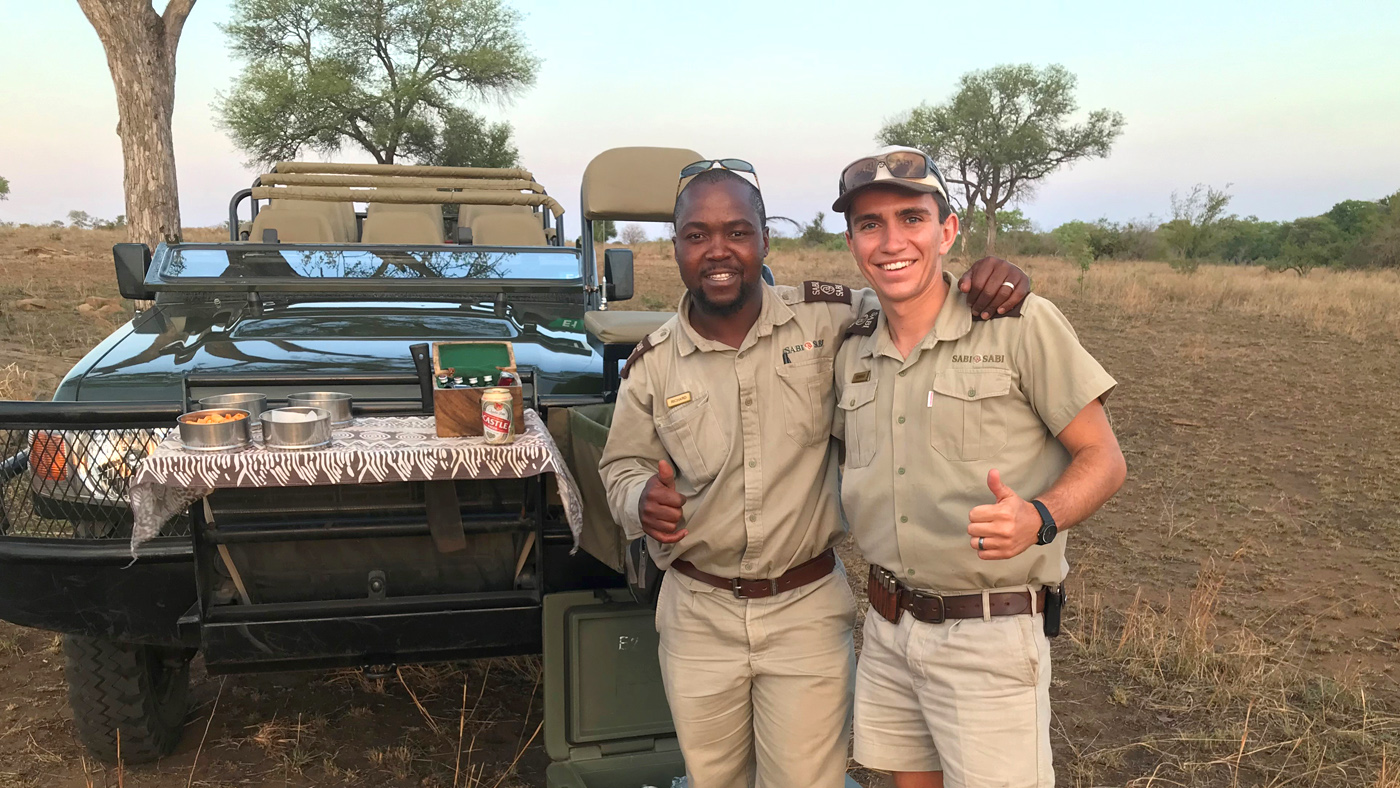
A free daily email with the biggest news stories of the day – and the best features from TheWeek.com
You are now subscribed
Your newsletter sign-up was successful
No matter how luxurious it is, a safari holiday is only ever as good as the game drives you go on.
At the sumptuous Sabi Sabi safari lodges in the Sabi Sands game reserve, every game drive is conducted by a team of two: a ranger and a tracker, who work together to locate animals both big and small and to unlock the secrets of the bush.
On a recent visit to Sabi Sabi, The Week Portfolio was introduced to ranger Conrad Zeelie and tracker Richard Sibuyi – who, as well as showing us the usual big five, explained why fever trees have green bark, why bush babies make bad pets (they are almost constantly urinating), and what makes Africa’s complex ecosystem unique and worth preserving.
The Week
Escape your echo chamber. Get the facts behind the news, plus analysis from multiple perspectives.

Sign up for The Week's Free Newsletters
From our morning news briefing to a weekly Good News Newsletter, get the best of The Week delivered directly to your inbox.
From our morning news briefing to a weekly Good News Newsletter, get the best of The Week delivered directly to your inbox.
At the end of our trip we sat down with them to talk about what it is like to live and work in the bush.
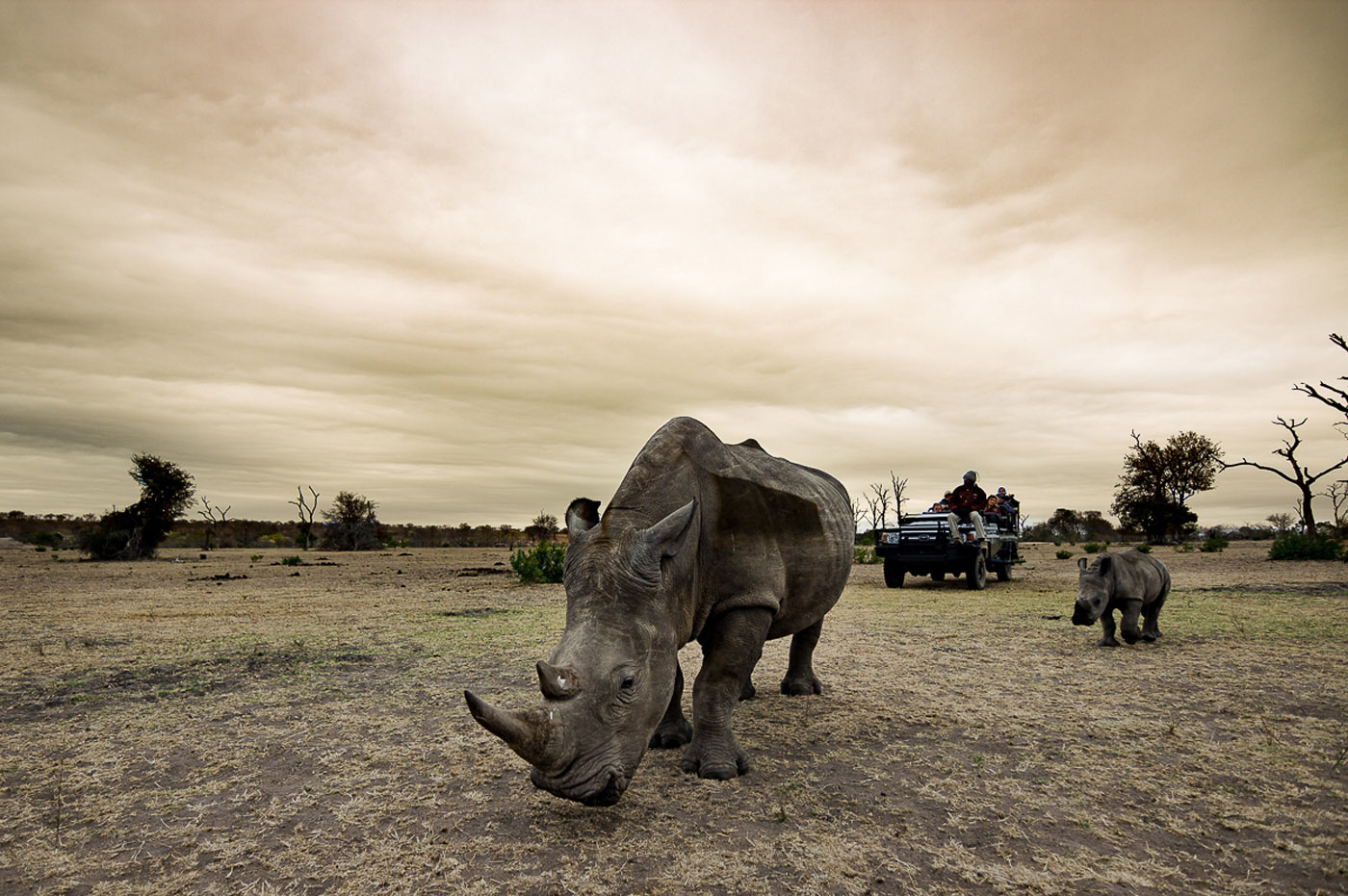
A close rhino encounter
Where did you both grow up and what made you want to work as a guide and a tracker?
Conrad: I grew up in Pretoria. As a kid I had a grandfather who loved the bush. He would always take me to outdoors and taught me whatever he could. When I finished school, I pursued my dream of living and working in the bush which I too learnt to love.
A free daily email with the biggest news stories of the day – and the best features from TheWeek.com
Richard: I grew up in Huntington village, where most people were either hunters or looked after cattle. Thus I learnt a lot from the people in my village and spent a lot of time tracking, while looking after my father's cattle.
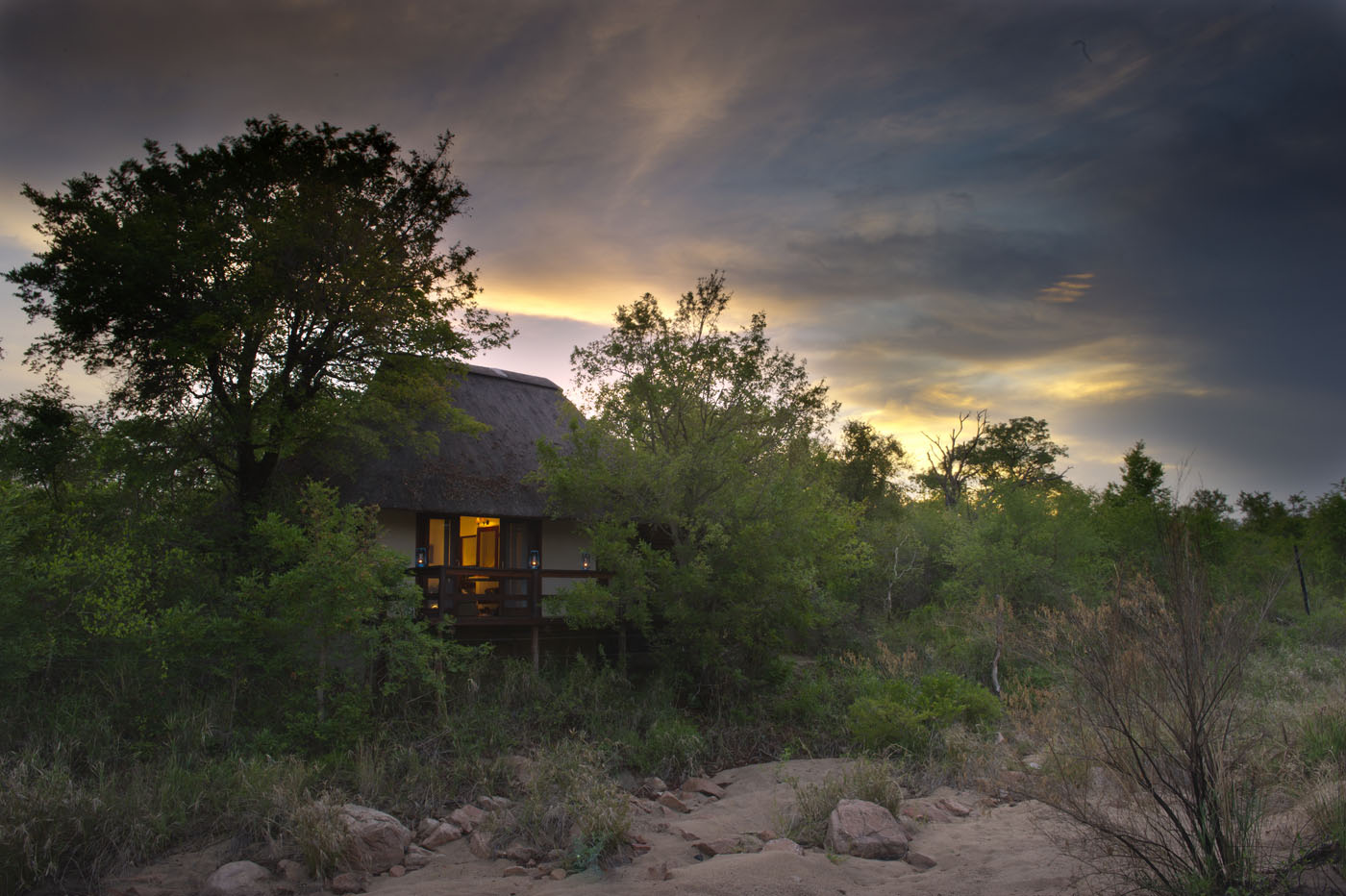
A room with a view - Little Bush Camp
What was your journey to Sabi Sabi?
Conrad: I did my training in Sabi Sabi in 2013 and once qualified got a job at the very same camp at which I trained. I worked there for two and a half years managing, training others and doing part time guiding, before I moved to Earth Lodge in 2016.
Richard: After working in the mining industry for two years I came back to my village, and got work as a camp assistant at a place called Nkombe camp – the training camp on the Sabi Sabi reserve where our new rangers are trained. I spent a lot of time observing animals, their behaviour and tracks. I then decided to become a professional tracker. I went to do a course in tracking at a place called Moholoholo. Once qualified I helped out at Sabi Sabi Bush Lodge for a while. They then assessed me as a tracker and made me part of the team, six and a half years ago.
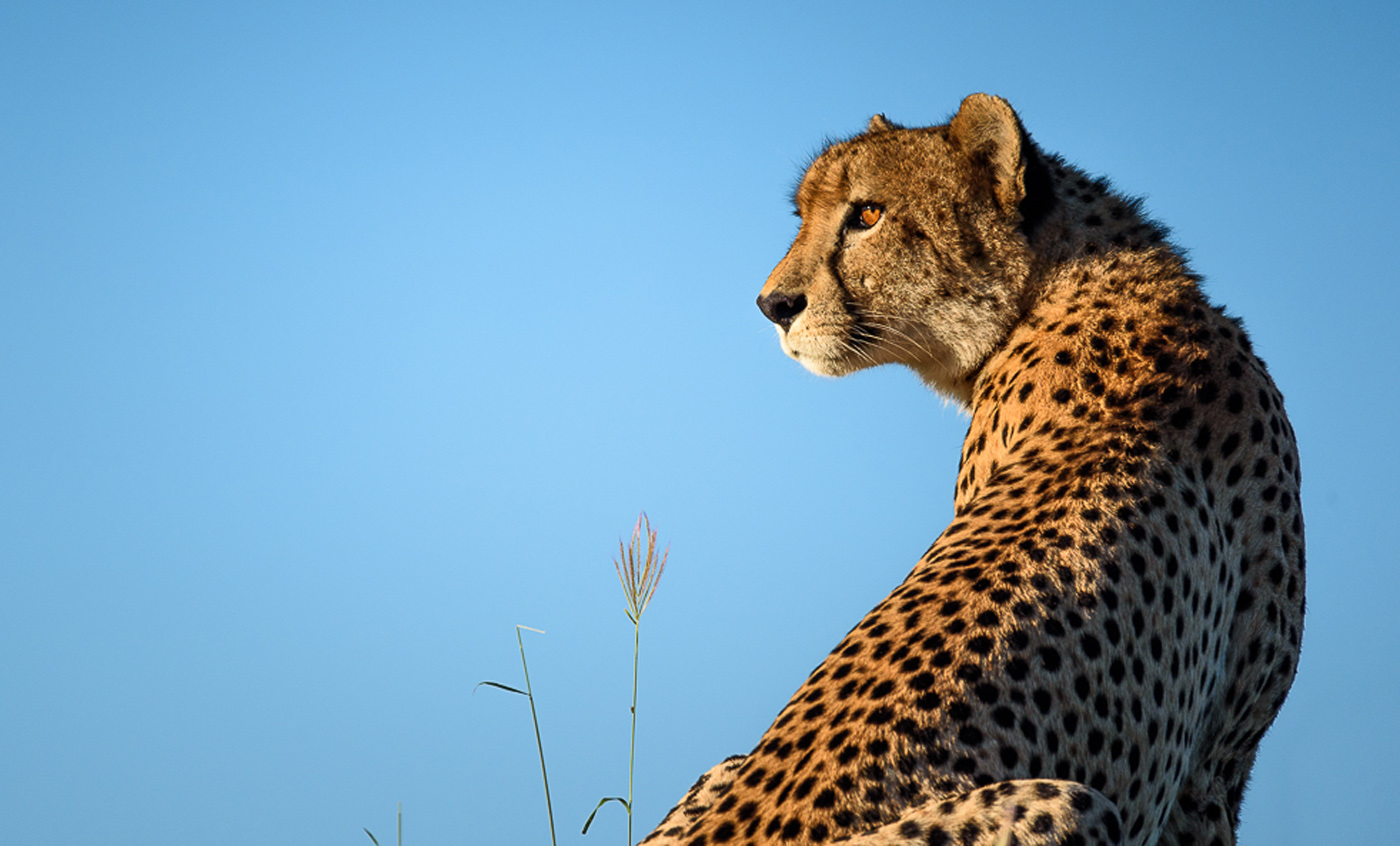
Spotted - a cheetah at sunset
What is it like working together and what skills do you each bring to the partnership?
Conrad: I am very privileged to be working with someone like Richard who really knows and understands the bush. I always say safari is a two-man job, you can't do it by yourself. I would not be able to provide the same experience without Richard's guidance and help.
Richard: Working together as a team everyday gives you a lot of learning opportunities, since each day is different and you can always learn from each other.
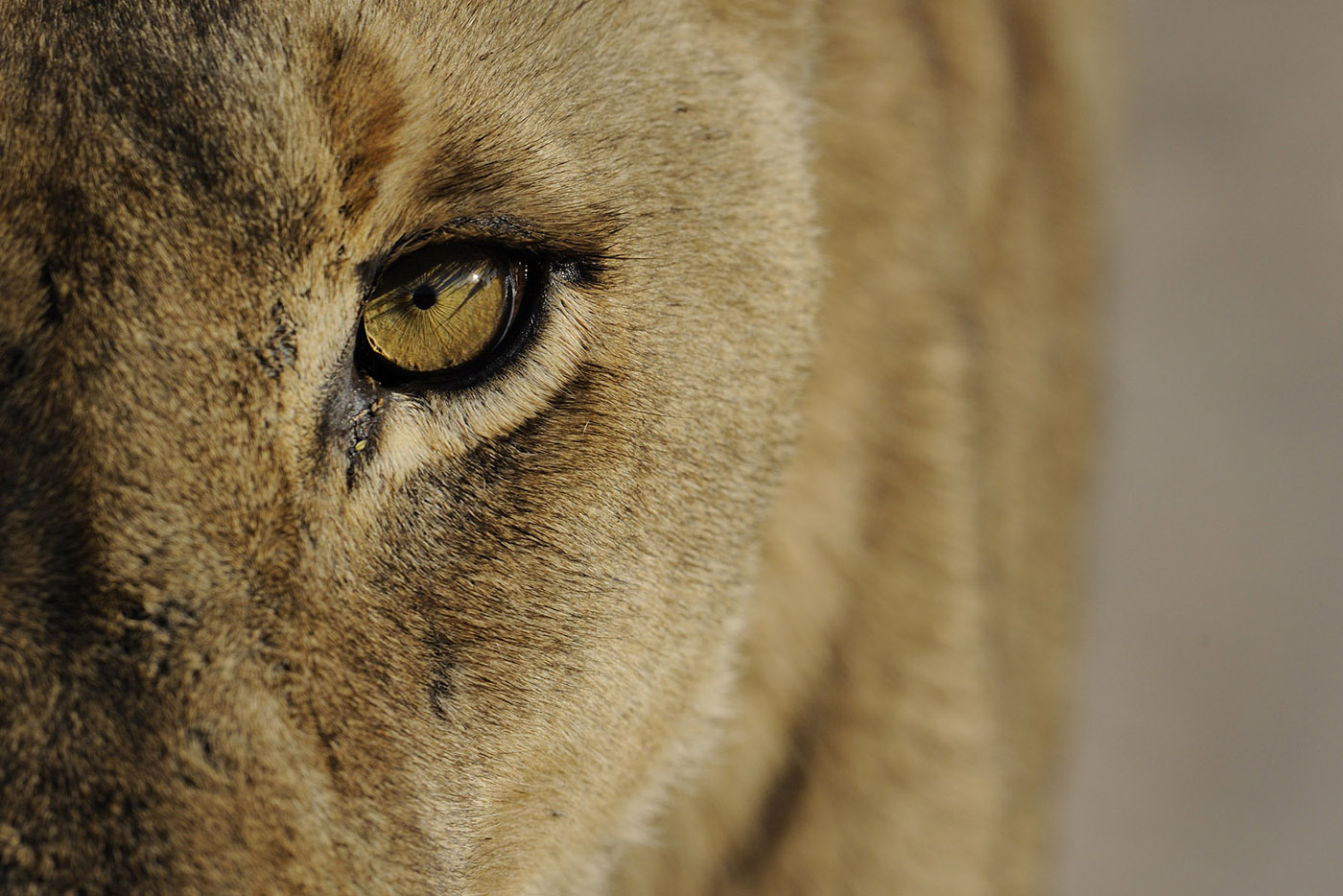
Eyes have it - a lioness on the prowl
What are some of your more unusual animal encounters?
Richard: I was lucky enough to see how a female impala cleaned her baby only seconds after giving birth. I also once witnessed a blue wildebeest giving birth. I always think the start of a new life is special and it will always stand out for me.
Conrad: I have been lucky enough to witness many amazing encounters and it is difficult to single out one in particular. One I recently had that springs to mind however was when a very brave hyena was attacked by a lioness after getting too close to a waterbuck kill the lions had made. The lioness had caught the hyena and was busy suffocating it, but the bone chilling distress call of the hyena lured the other clan members, who then started mobbing the lioness until the injured hyena managed to escape the lioness’s jaws. This was really an amazing encounter.
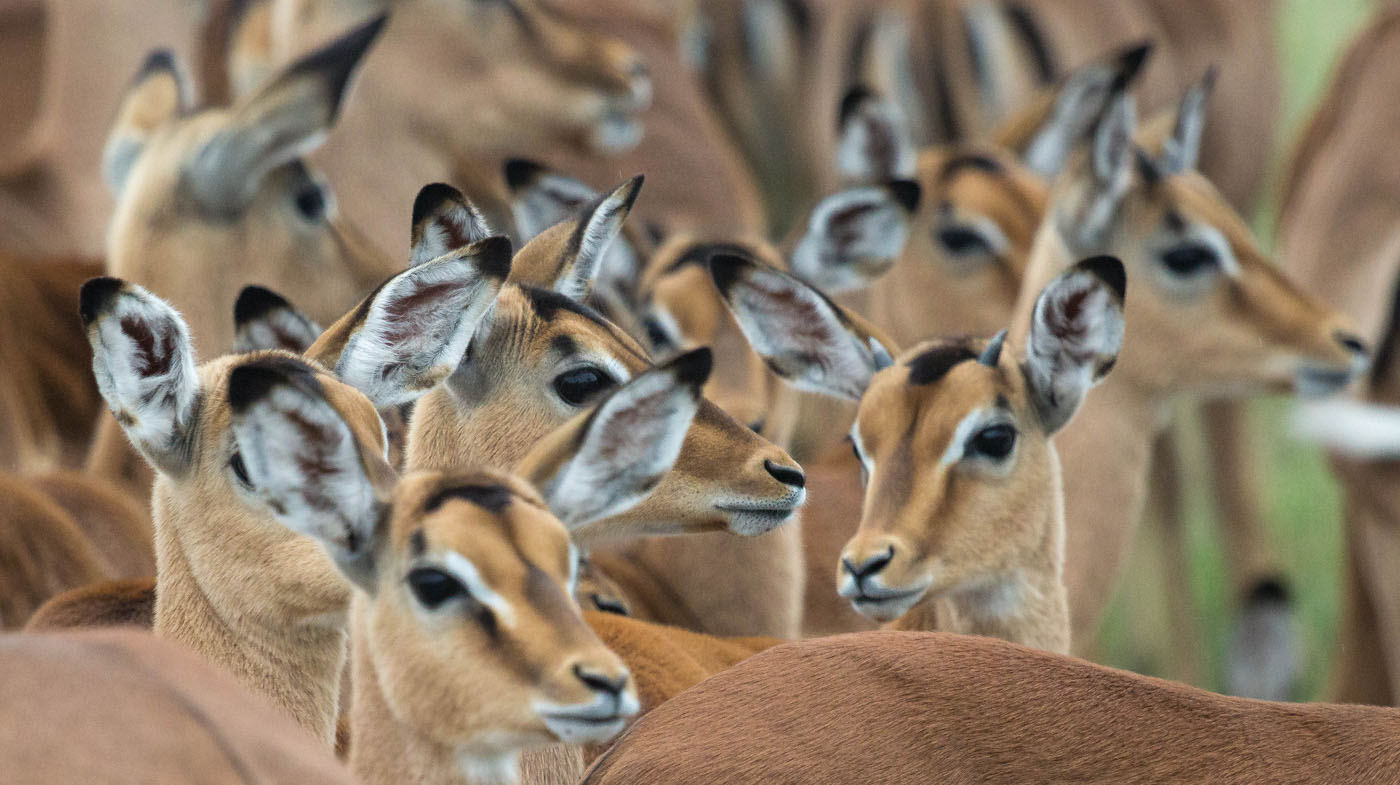
Seen and herd - a group of impala
Which animal do you find the most interesting and why?
Richard: I find impala very interesting, to see how they live and work together as group, to keep each other safe by keeping an eye out for danger. I also enjoy to see how they groom and care for each other. I find it interesting how these animals, especially the males, behave completely differently during the breeding season than the rest of the year.
Conrad: Once again, it is difficult to single out one because there is so much in nature that is interesting, from the biggest elephants with their social behaviour and interactions with each other being led by a matriarch, to the tiny cocktail ants who are so well organised with their division of labour, working together in a caste system.
What do you think makes Sabi Sabi special?
Conrad: Richard and I both agree that the one thing above all that stands out at Sabi Sabi is the rich diversity of organisms, and to witness the interactions between species and their environment. To be able to see this on a daily basis is truly special, as is to being an active part of conserving this pristine environment for generations to come.
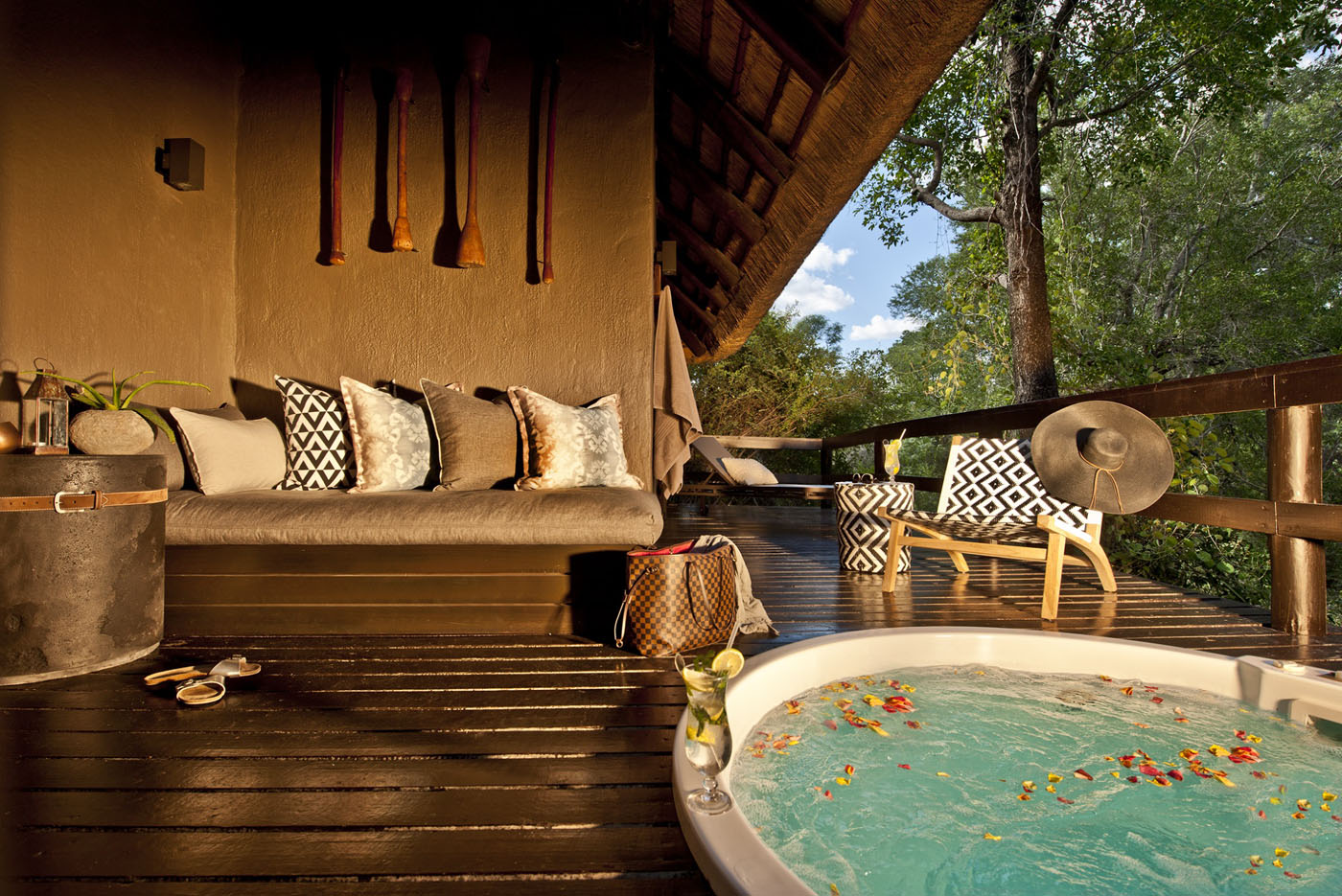
Lucky dip - jacuzzi at Little Bush Camp
Richard, what was it like growing up in this area and what are the challenges your village faces?
Richard: I loved growing up in Huntington since it was in the bush. I could always learn from and play in nature. There has always been opportunity to learn from the bush and people in my village. We do however face some challenges, such as a lack of good roads and infrastructure in our village. One of the biggest problems is water since we don't have running water at our homes - we sometimes have to walk long distances to fill up water tanks and carry them back home. Sometimes you even need to wait in line to do this.
Is enough being done in South Africa to combat poaching?
Conrad: One can never do enough and all efforts need to be aimed at continuous long term effect. We can both talk from only our aspect and gladly say that, we believe great strides are being made in the protection of species. Not only have all the Sabi Sand Reserve lodges come together to form a Conservation Fund (which is a nominal levy charged to each guest and which goes toward the anti-poaching fund) but Sabi Sabi has its own internal anti-poaching unit which have been extremely successful in the past number of years. I think that one should start in your own back yard. That is what Sabi Sabi have done and we have shown great success in this and will continue to strive towards winning this battle.
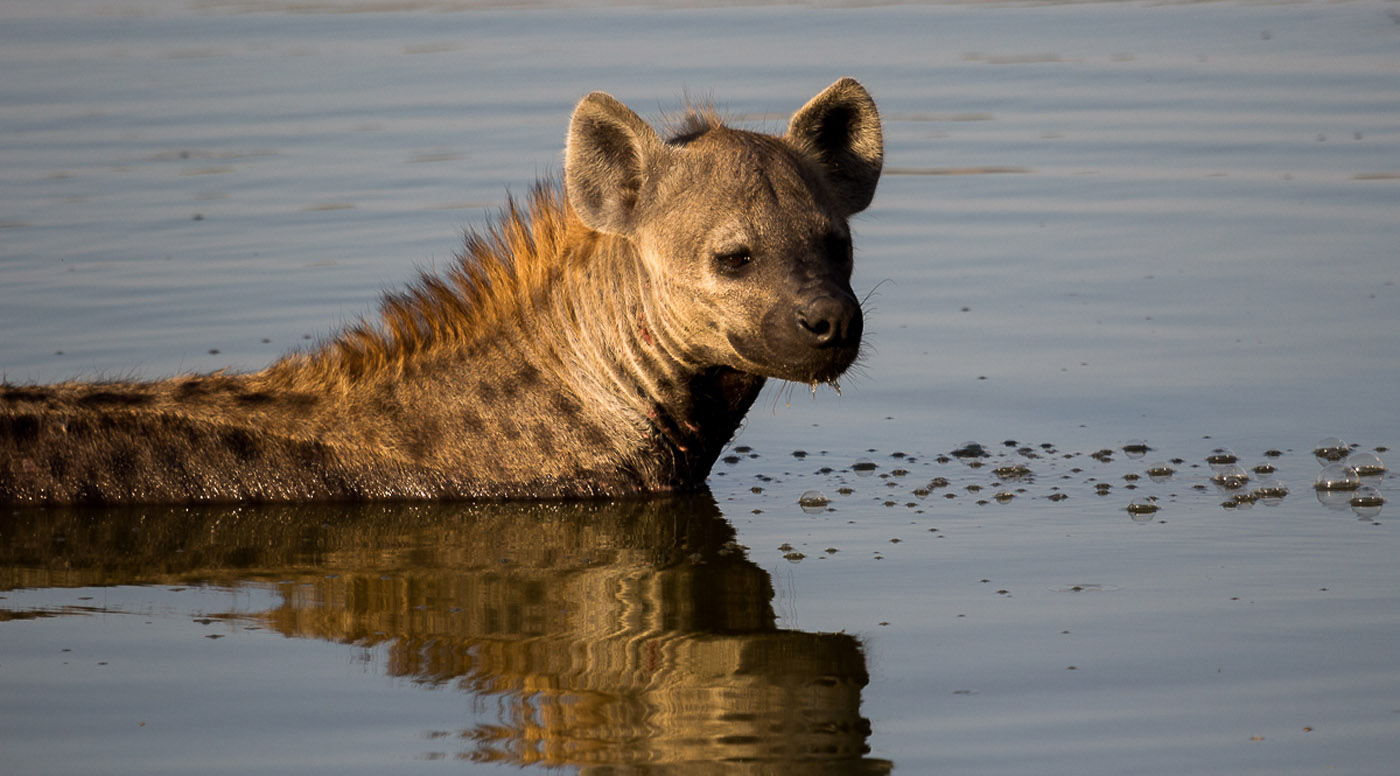
Mudbath - a hyena cooling down
Is there a best time of the year to visit Sabi Sabi?
Richard: Each season has its own magic. We are now into spring and going into summer, which is traditionally our rainy season. Therefore, there is lots of food around and animals are strong. The migrating birds are returning, there are baby antelope around and the bush is lush and thick. However, when autumn and winter come around, it brings a different feeling. It is cooler and the grasses are lower so this benefits game viewing. There are still magnificent birds around even if some of the species have migrated. I love the way the seasons work – like the cycle of life at Sabi Sabi – the hot summer months needs the winter months and vice versa.
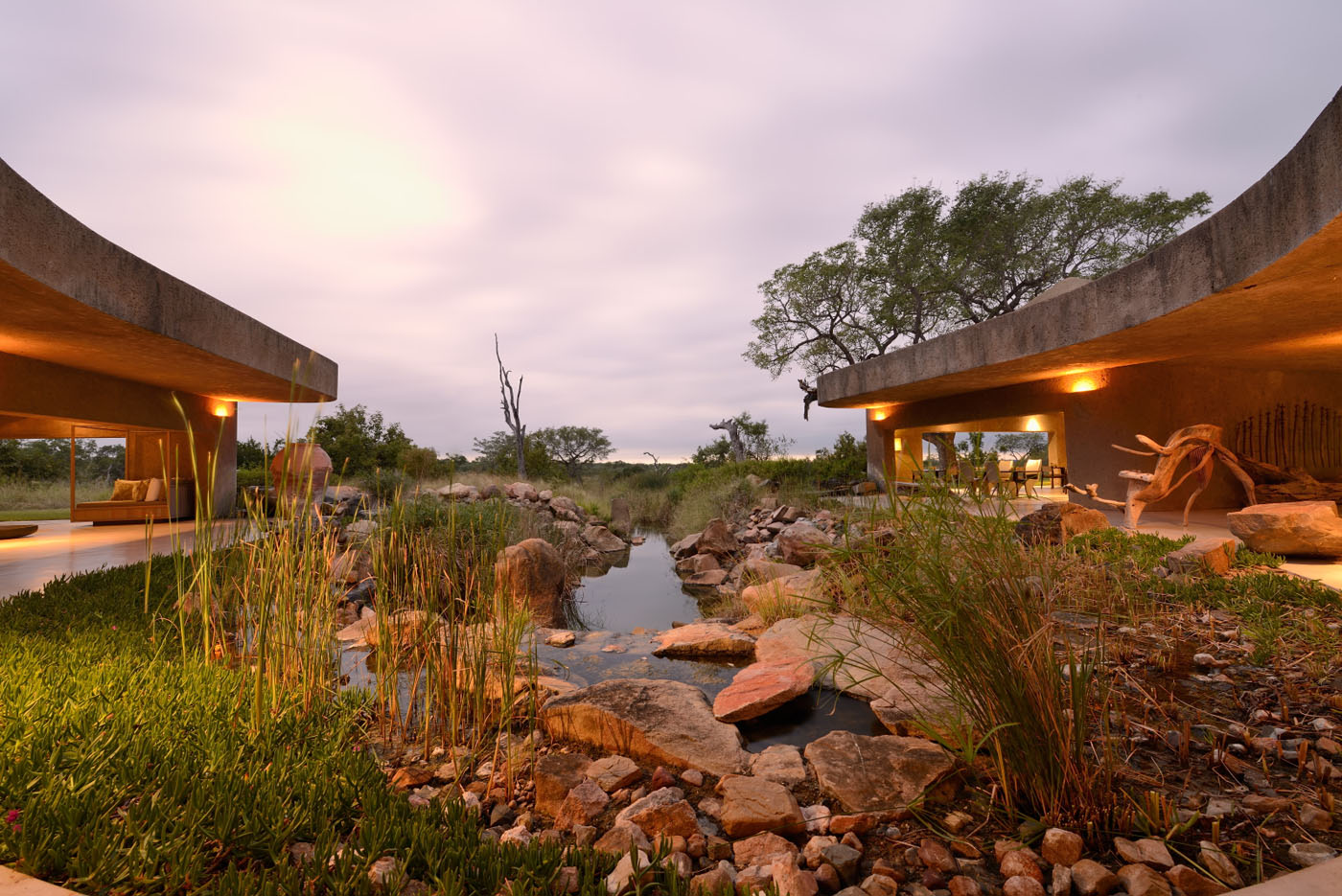
Mother Earth - the view from Earth Lodge
If you were a guest which lodge would you stay in?
Conrad: We often get asked this question and for both of us it is an extremely difficult question to answer. Obviously as we both work at Earth Lodge, we love this lodge – it is our home. But the whole of Sabi Sabi is our home. We often have staff get togethers when there is a bit of down time, at the other lodges and also, in particular, when we take guests on visits to the others we are exposed to the other lodges… they are all so different. So we think it depends on what type of person you are. Because Sabi Sabi has very cleverly incorporated “Africa” into each design style but still kept the motto of “Yesterday, Today and Tomorrow”, we have an experience that pretty much suits everyone’s taste.
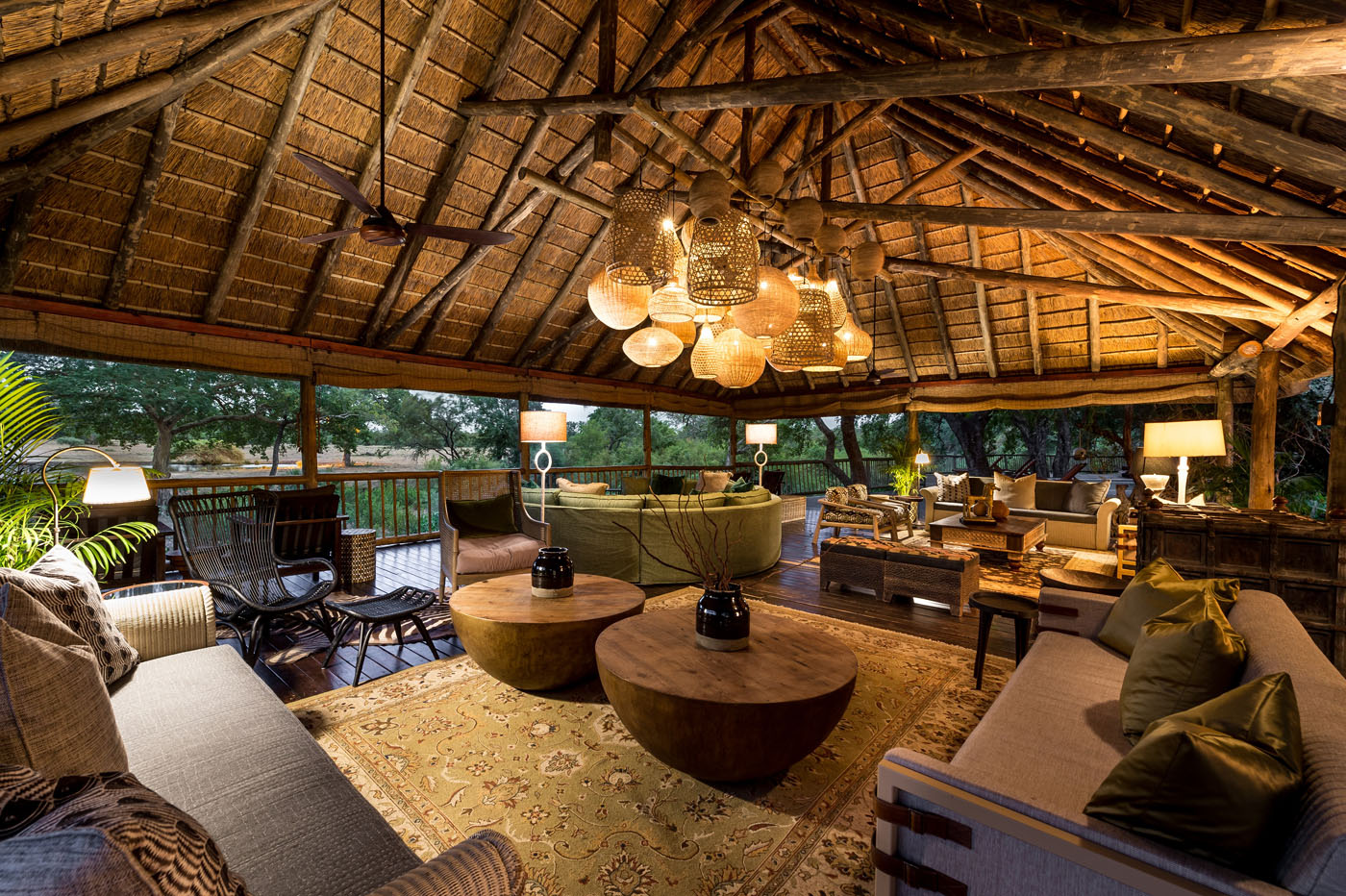
On deck - lounging at Bush Camp
What advice would you have for someone going on safari for the first time?
Conrad: I would say start off without any expectations: what you will experience on safari really is amazing and different each time. No two experiences are the same yet the bush never fails to amaze. Also don't restrict yourself to a checklist of animals you want to see because if you are willing to let your guide show you big and small things, you will discover more then you could ever expect. The most important piece of equipment I recommend is a camera because the one guarantee is that you will see great things you would want to capture for ever.
Wexas Travel (0207 838 5892, wexas.com) is offering a seven-night trip to South Africa from £5,785 per person, based on two sharing. This includes international flights from the UK to Cape Town and from Johannesburg to the UK on South African Airways; domestic flights from Cape Town to Skukuza and from Skukuza to Johannesburg; private airport transfers in Cape Town; three nights of accommodation at Queen Victoria Hotel in Cape Town on a B&B basis; four nights of accommodation at Sabi Sabi Earth Lodge on a full-board basis; twice daily shared game drives
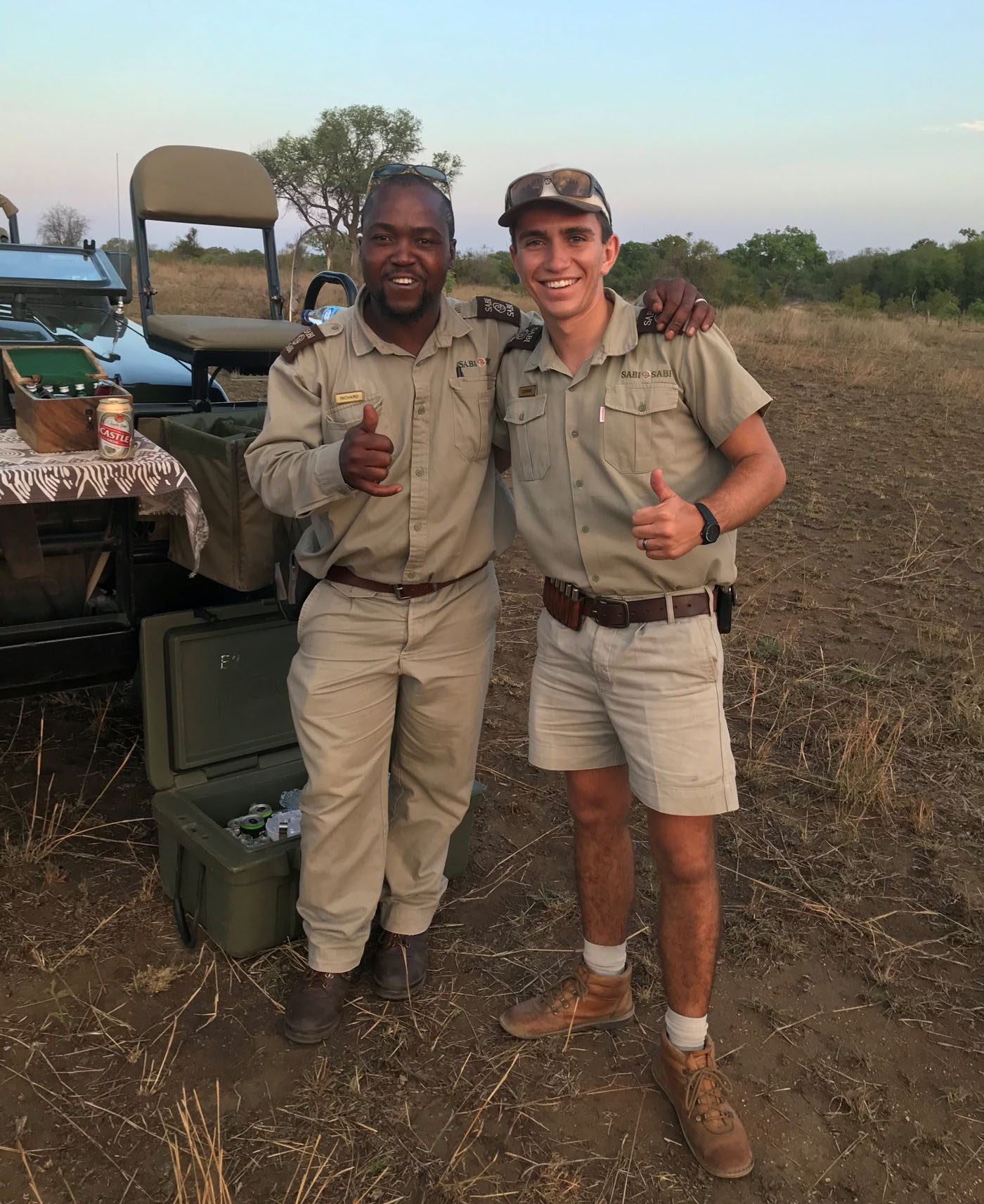
Conrad and Richard in their native habitat
Arion McNicoll is a freelance writer at The Week Digital and was previously the UK website’s editor. He has also held senior editorial roles at CNN, The Times and The Sunday Times. Along with his writing work, he co-hosts “Today in History with The Retrospectors”, Rethink Audio’s flagship daily podcast, and is a regular panellist (and occasional stand-in host) on “The Week Unwrapped”. He is also a judge for The Publisher Podcast Awards.
-
 How the FCC’s ‘equal time’ rule works
How the FCC’s ‘equal time’ rule worksIn the Spotlight The law is at the heart of the Colbert-CBS conflict
-
 What is the endgame in the DHS shutdown?
What is the endgame in the DHS shutdown?Today’s Big Question Democrats want to rein in ICE’s immigration crackdown
-
 ‘Poor time management isn’t just an inconvenience’
‘Poor time management isn’t just an inconvenience’Instant Opinion Opinion, comment and editorials of the day
-
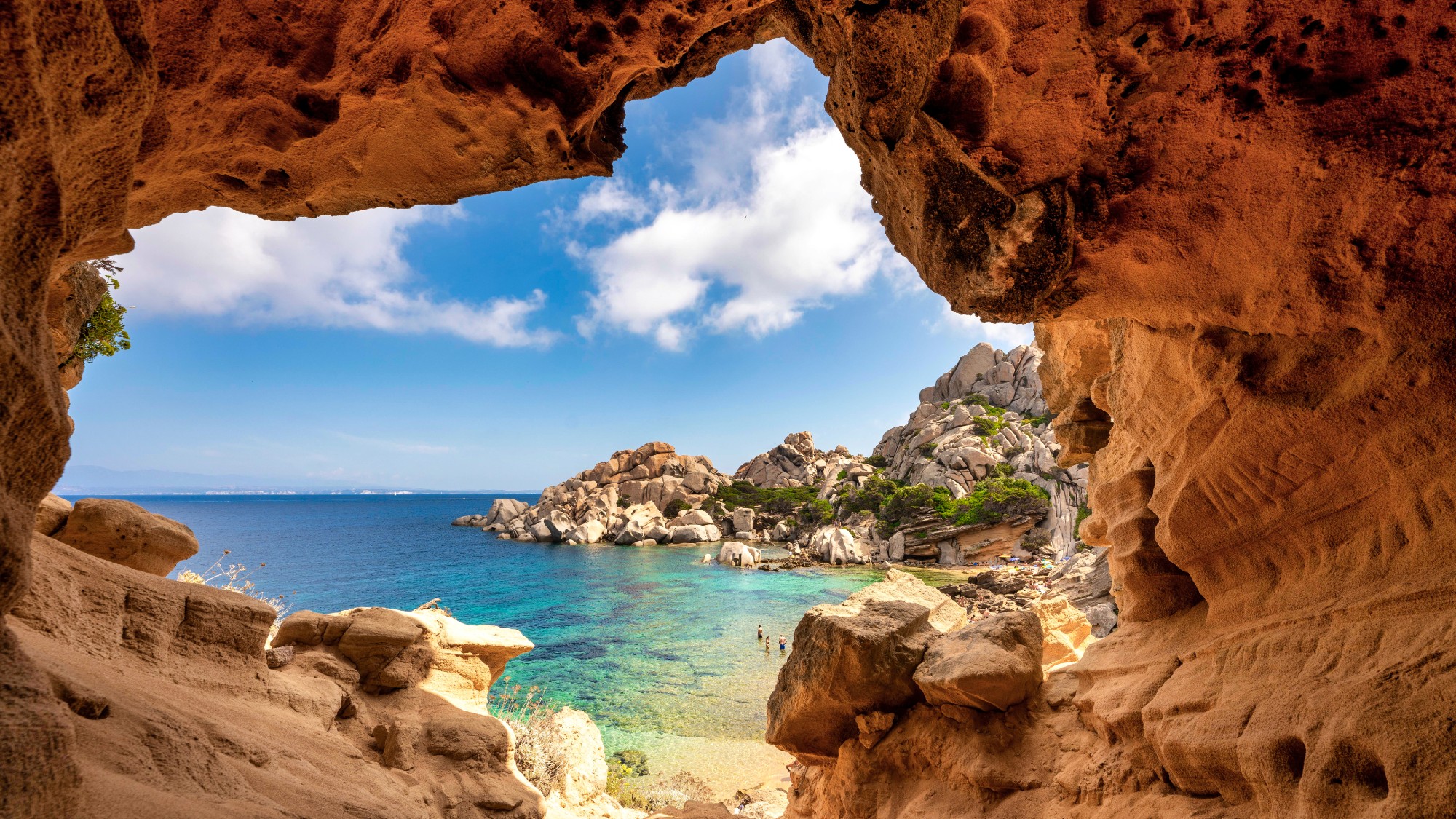 8 incredible destinations to visit in 2026
8 incredible destinations to visit in 2026The Week Recommends Now is the time to explore Botswana, Mongolia and Sardinia
-
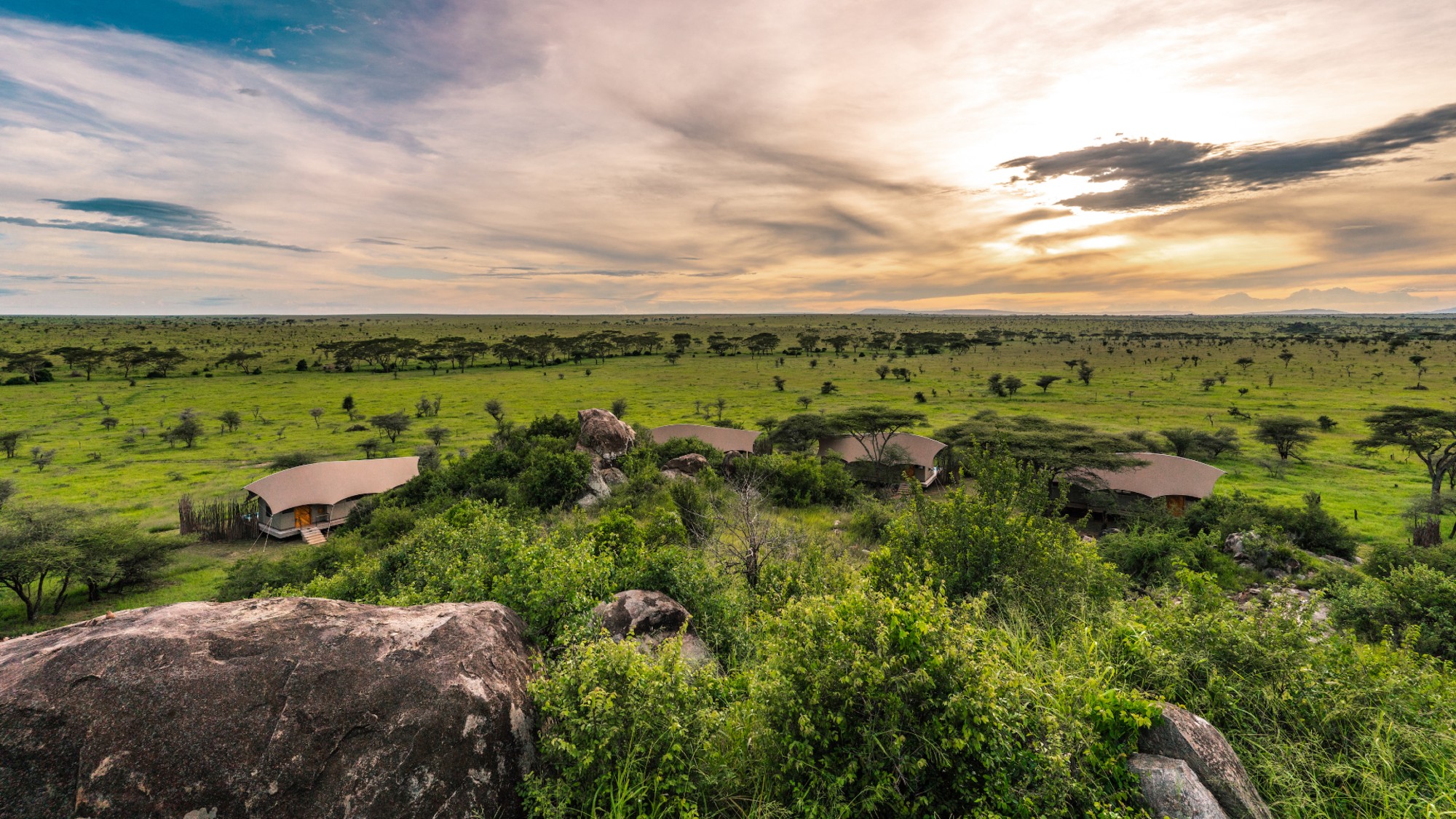 Experience Tanzania’s untamed wilderness from Lemala’s luxury lodges
Experience Tanzania’s untamed wilderness from Lemala’s luxury lodgesThe Week Recommends The vast protected landscapes are transformed into a verdant paradise during ‘emerald season’
-
 8 hotels with ace tennis courts
8 hotels with ace tennis courtsThe Week Recommends Bring your A game
-
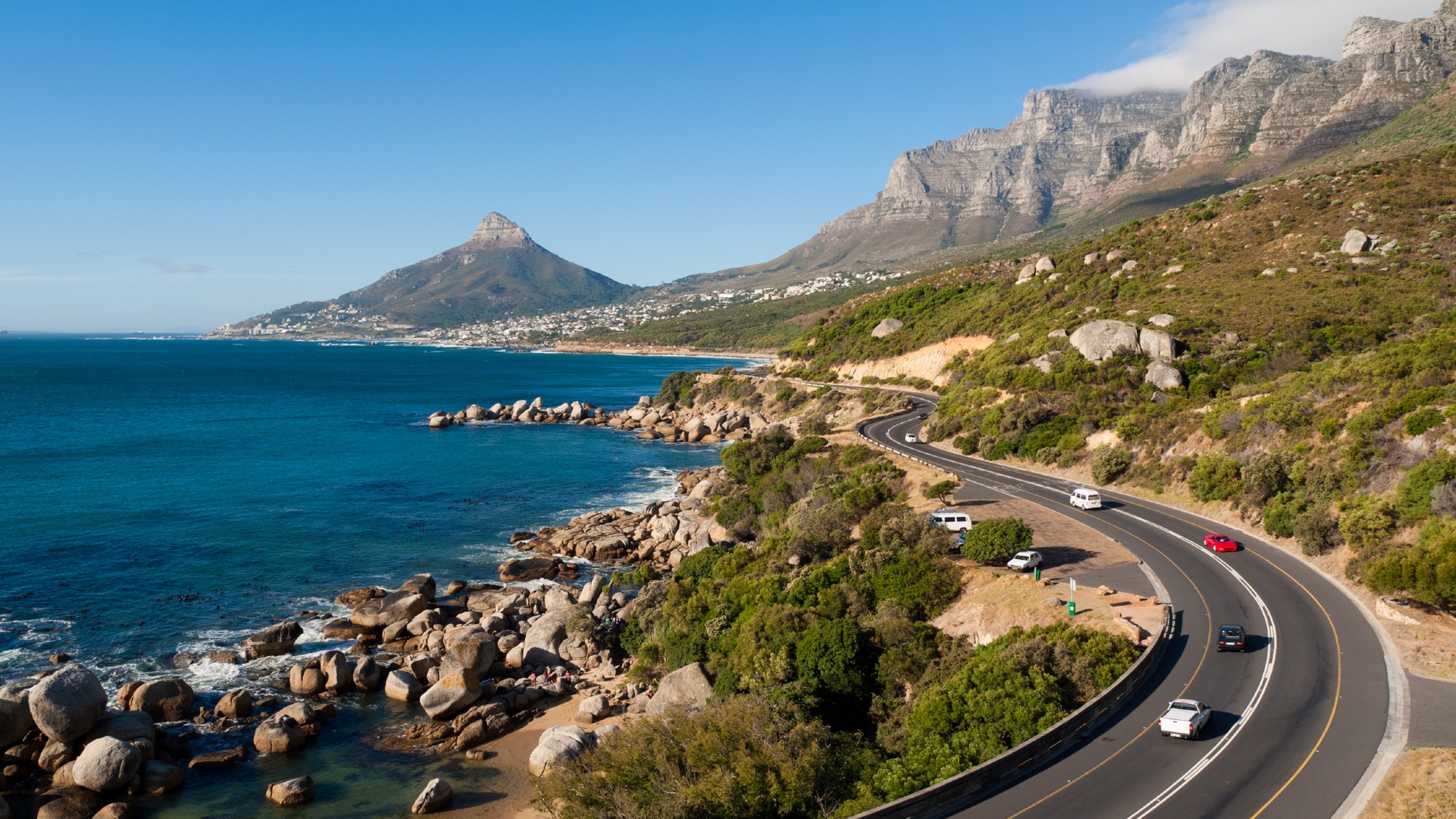 5 cultural and scenic trails to wander on four wheels
5 cultural and scenic trails to wander on four wheelsThe Week Recommends Leave the hiking shoes at home
-
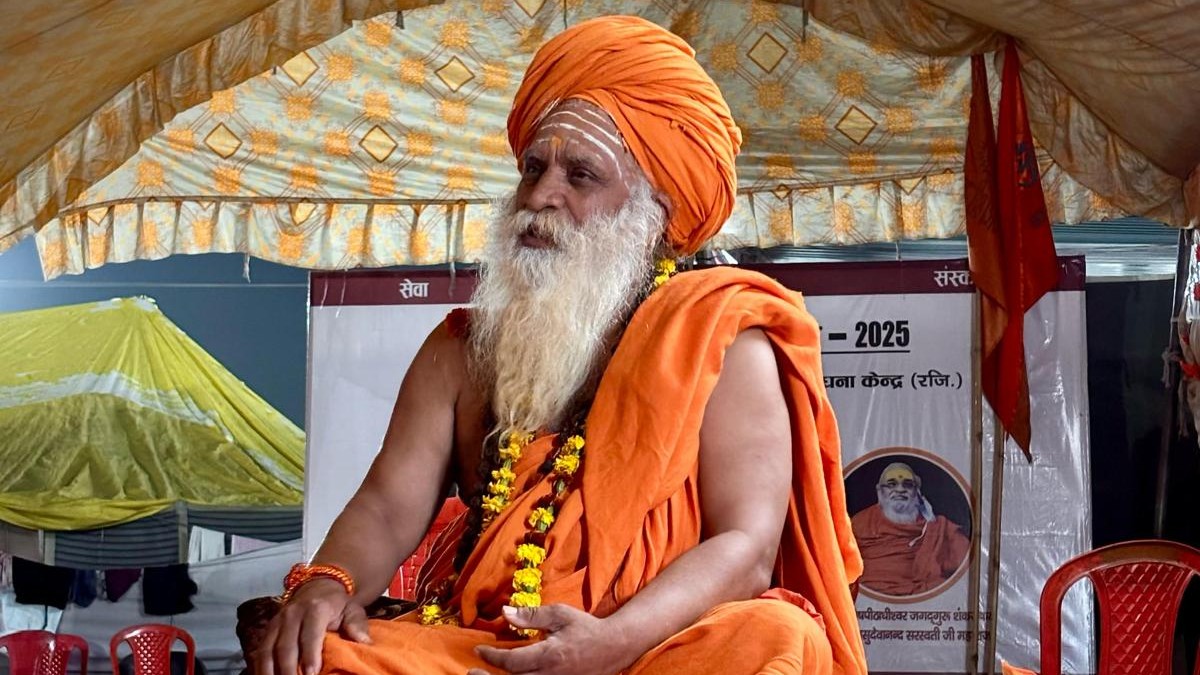 Uttar Pradesh: from a once-in-a-generation festival to tiger tracking in an ancient forest
Uttar Pradesh: from a once-in-a-generation festival to tiger tracking in an ancient forestThe Week Recommends Soak up the state's rich culture on one of Explorations Company's specially curated tours
-
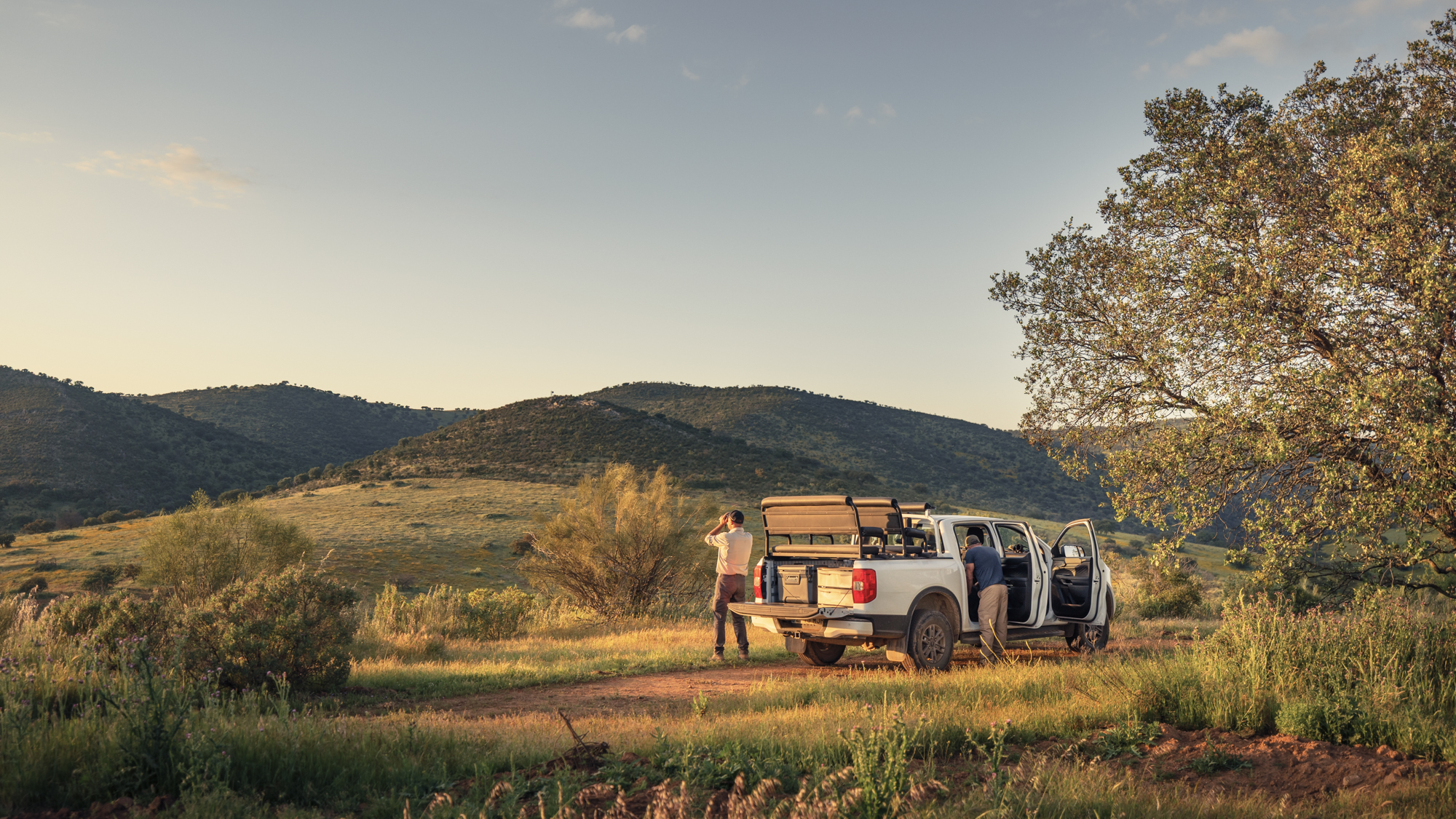 On the trail of the Iberian lynx
On the trail of the Iberian lynxThe Week Recommends Explore the culture, food – and wildlife – of Extremadura on this stunning Spanish safari
-
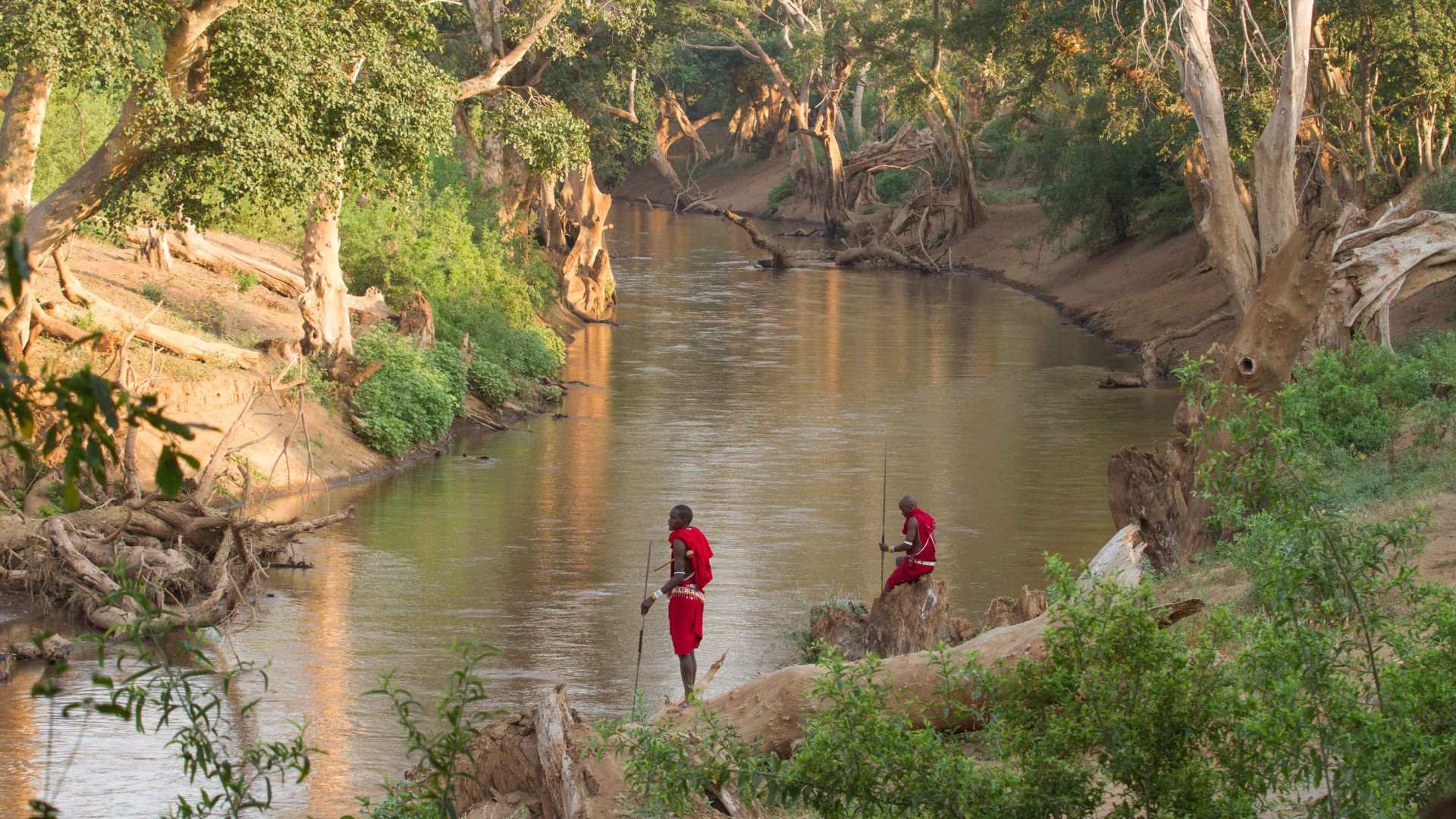 Shompole Wilderness Camp: immerse yourself in nature at this secluded retreat
Shompole Wilderness Camp: immerse yourself in nature at this secluded retreatThe Week Recommends This luxurious family-run camp in southern Kenya has access to more than 350,000 acres of pristine savannah
-
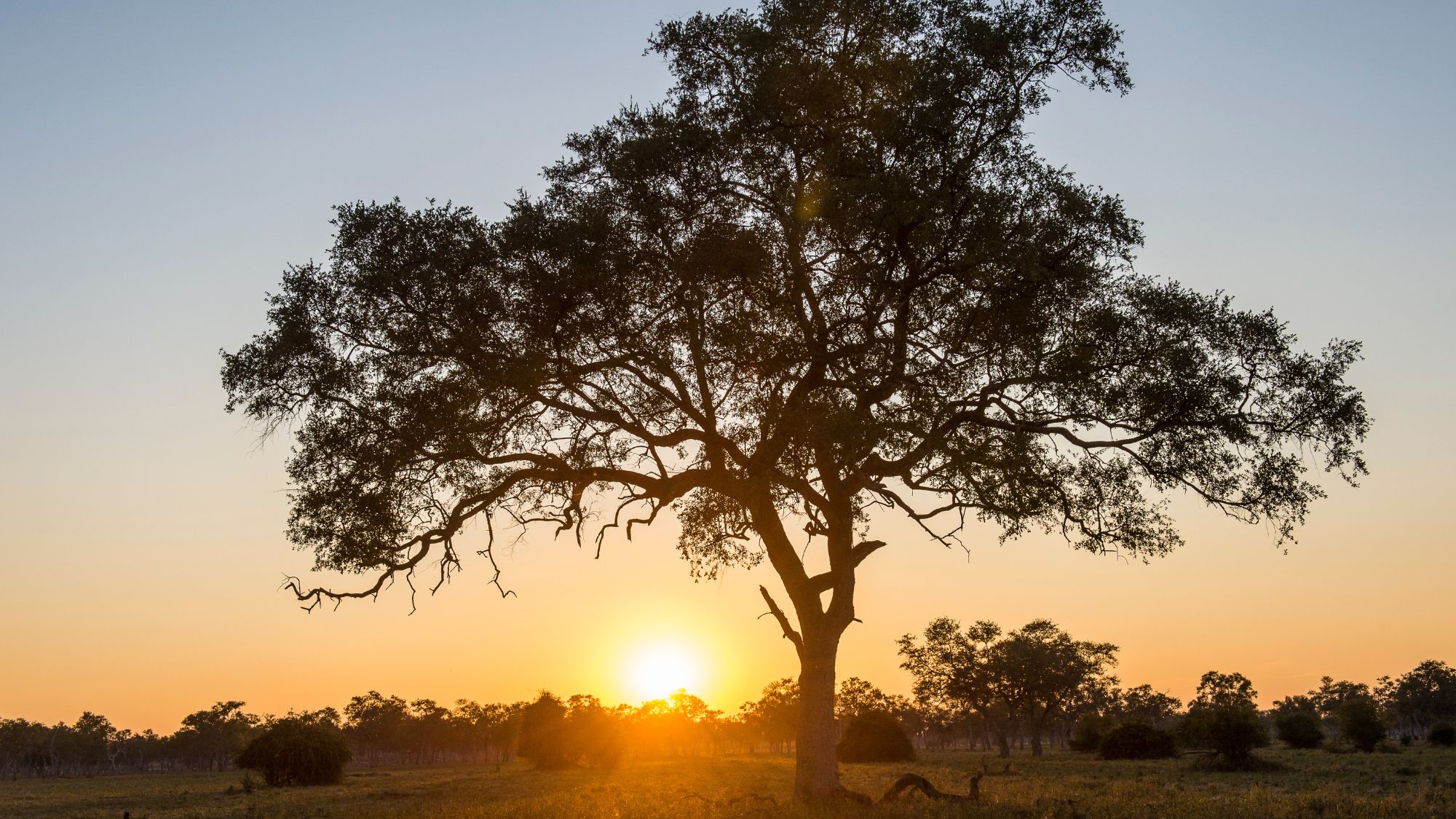 A horseback safari in the wilds of Zambia
A horseback safari in the wilds of ZambiaThe Week Recommends Unforgettable trip offers chance to see wildlife and experience local villages